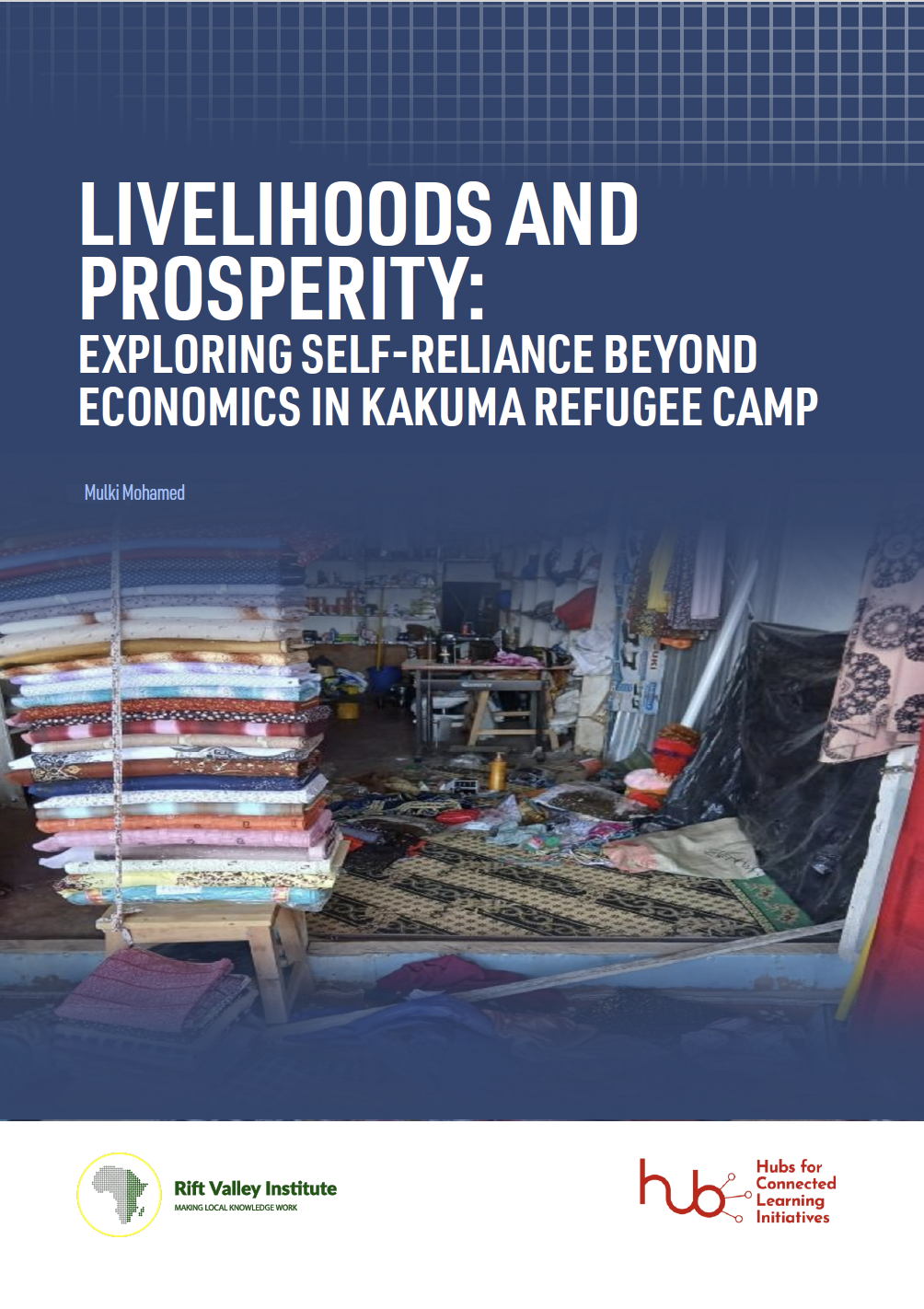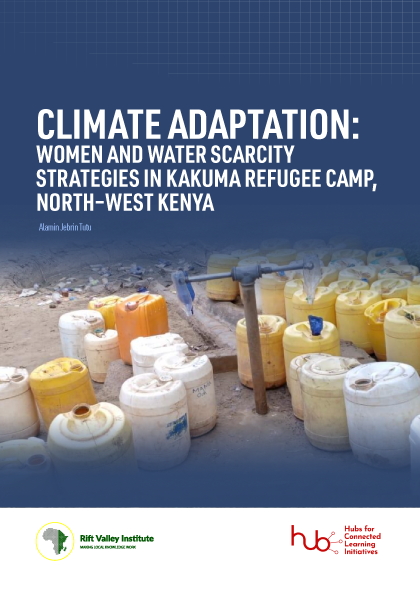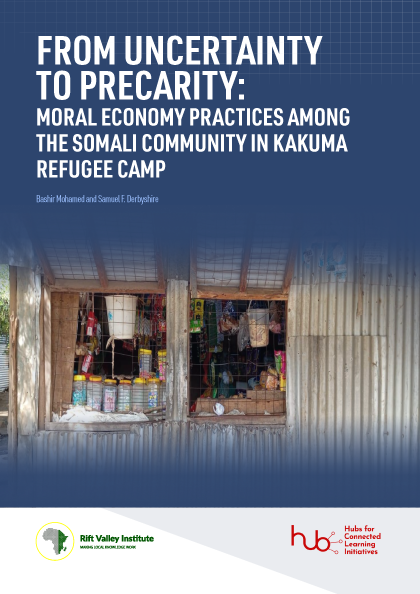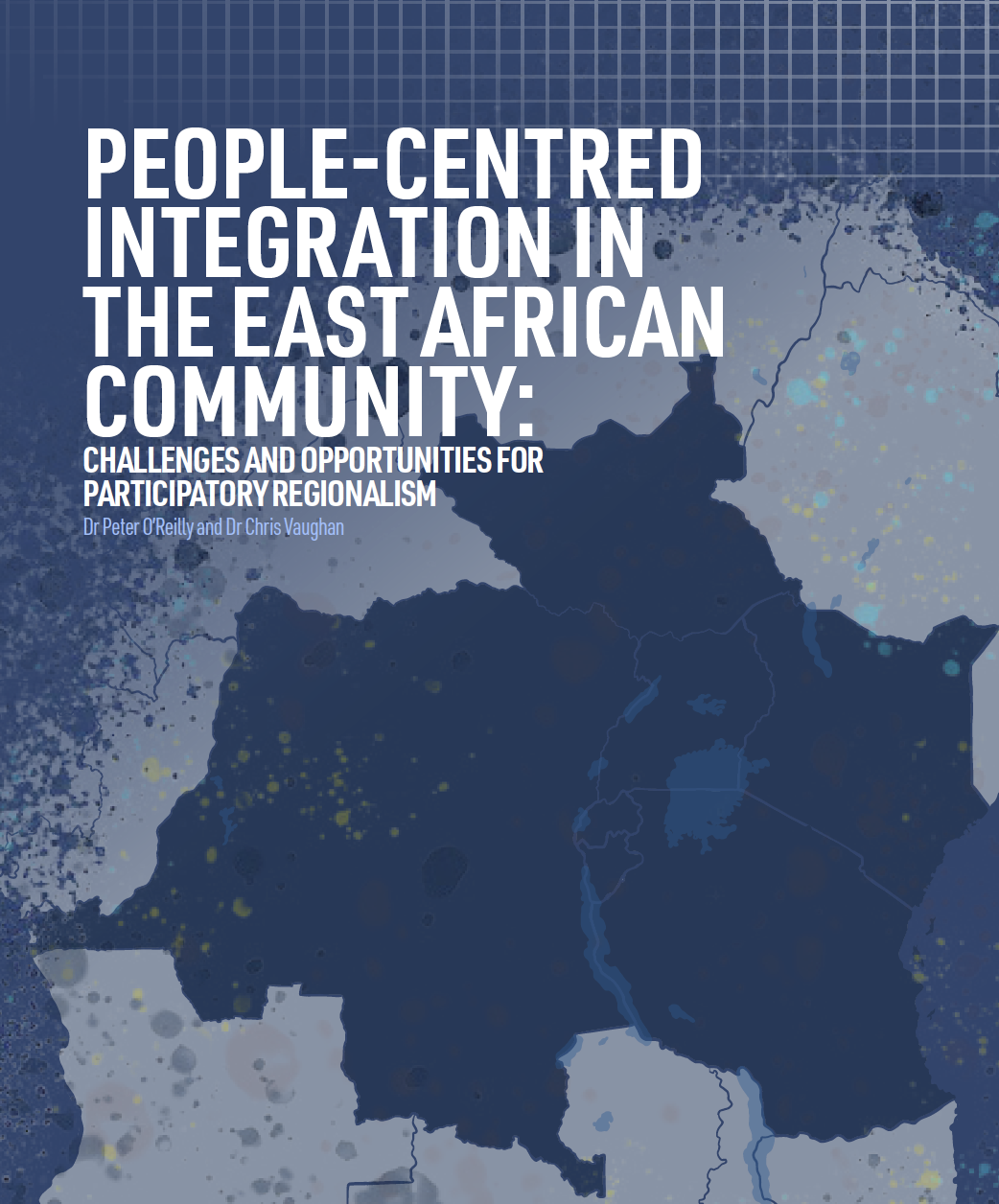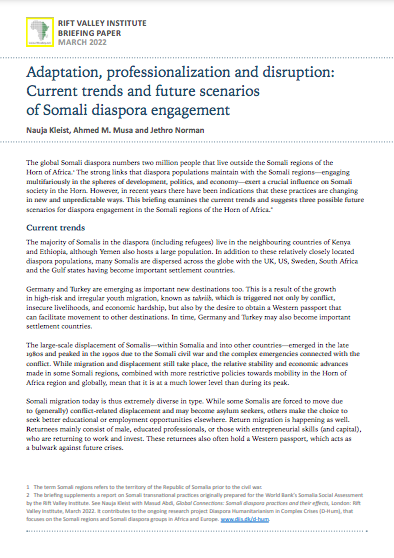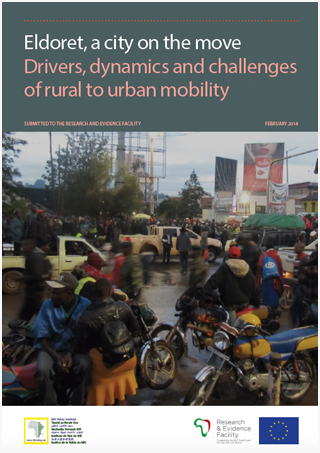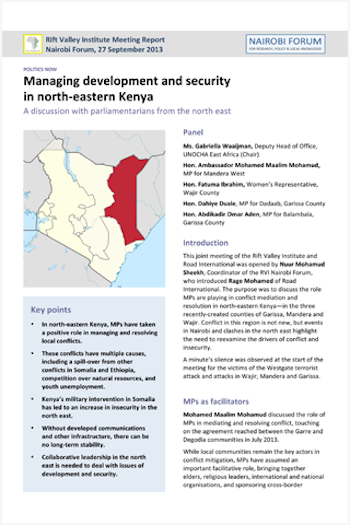This paper explores how agency and livelihoods are articulated and shaped in the overall picture of refugee life as a whole, specifically in Kakuma refugee camp in north-western Kenya. It digs into the details of how refugees exercise self-reliance,…
RVI publishes books, research reports, research papers, briefings and meeting reports in a range of formats. Publications cover policy, research, arts, culture and local knowledge in the countries of eastern and central Africa. Research publications—books, reports and papers—are peer-reviewed. Some RVI publications are also available in French and/or Arabic.
The RVI is a signatory of the Budapest Open Access Initiative (2001); all publications are free for download in PDF format under Creative Commons licences. The views expressed in books and reports published by the RVI are those of the authors, not the Institute.
SEARCH
PUBLICATION TYPE
LANGUAGE
REGION
COUNTRY
This paper investigates the coping and adaptation strategies used by women in Kakuma refugee camp in response to water scarcity, a pressing issue worsened by climate change. Qualitative data collection methods, including focus group discussions, interviews and observations, were…
This paper explores how precarity shapes life for Somali refugees in Kakuma refugee camp, north–western Kenya. Contrasting contemporary precarity with the uncertainty that previously shaped livelihoods and social structures in Somali pastoralist communities back home, the study asks not…
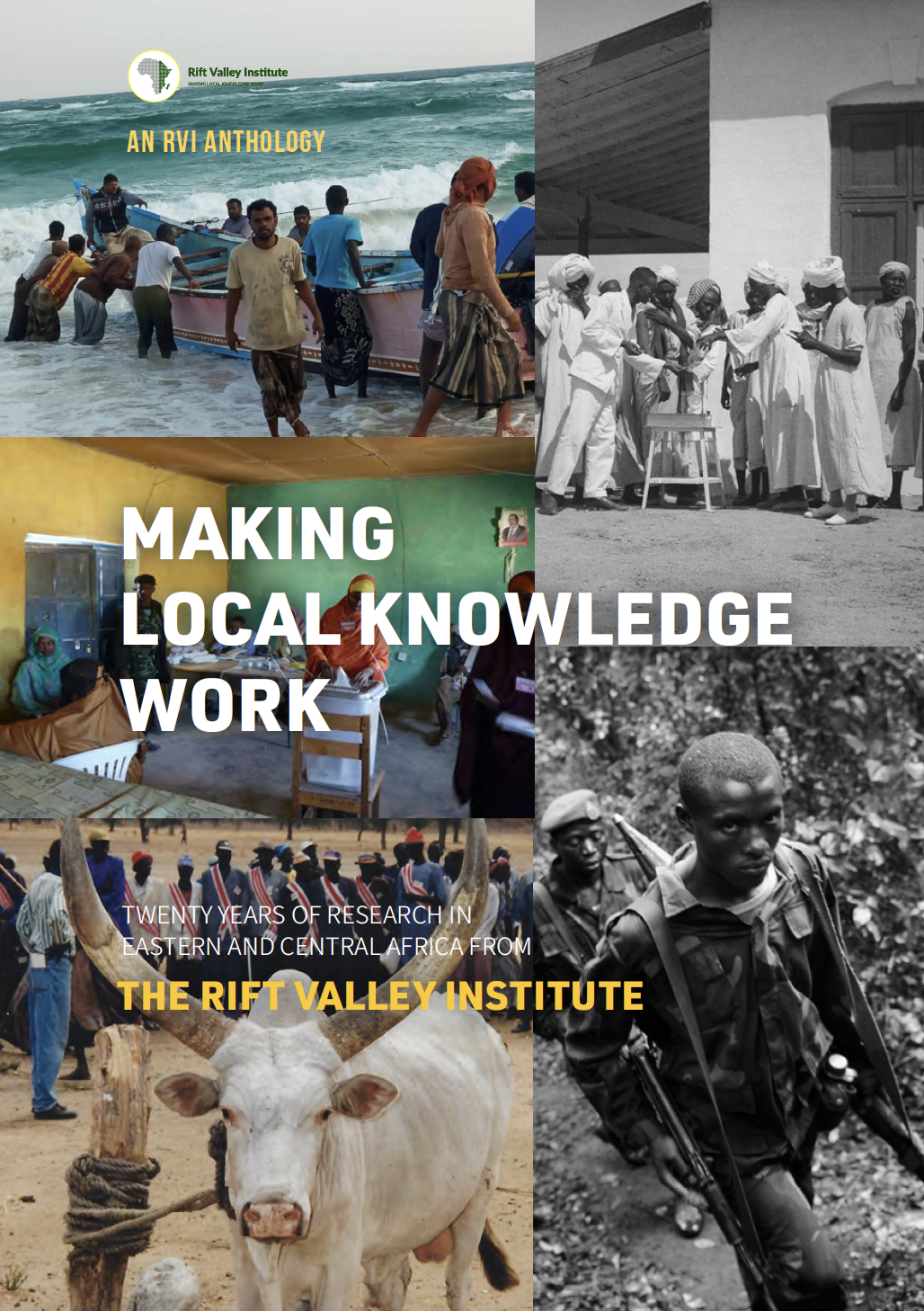
- Download
In 2021 RVI celebrated the 20-year anniversary of its founding in southern Sudan in 2001. As part of these celebrations, we decided to produce an Anthology of our published work over the last two decades: 20 chapters to mark…
The global Somali diaspora numbers two million people that live outside the Somali regions of the Horn of Africa. The strong links that diaspora populations maintain with the Somali regions—engaging multifariously in the spheres of development, politics, and economy—exert a…
With an estimated two million people of Somali descent living outside Somalia—the ‘Somali diaspora’—an understanding of migration and transnational practices is crucial for grasping Somali society. Mobility and mobile livelihoods have been important aspects of Somali life for centuries….

- By Raga Makawi, Justin Willis
- Download
In the first episode of the Sudan Elections podcast series ‘Voting for Change’, host Raga Makawi talks to Justin Willis- Professor of Modern History at Durham University – about election models adopted in Sudan’s modern history, key…
The Rift Valley Institute’s Rural to urban mobility project aims to better understand the dynamics of rural to urban migration and the ways in which this phenomenon impacts the social and infrastructural fabric of cities in East Africa. It is conducted…
Key points In north-eastern Kenya, MPs have taken a positive role in managing and resolving local conflicts. These conflicts have multiple causes, including a spill-over from other conflicts in Somalia and Ethiopia, competition over natural resources, and youth unemployment….
Recent Publications

Rethinking Aid in Sudan and South Sudan
January 28, 2026
The brief draws on a joint convening held in Kampala, Uganda, in November 2025, which brought together more than 45 Sudanese and South Sudanese participants representing more than 30 grassroots organizations and international NGOs. Its primary objective is to amplify

EWNET Writes: Writing Workshop Session I
December 18, 2025
The Ethiopian Women Researchers Network (EWNET) inaugural writing workshop series aims to not only provide women researchers with uninterrupted time for their scholarly projects, but also build a supportive academic community. The first session, entitled ‘EWNET Writes: Writing Workshop Session

SSC-Khaatumo: Perspectives on the significance and implications of its formation
December 12, 2025
On 15 April 2025, during a visit to the city of Las Anod in Sool, Prime Minister Hassan Abdi Barre officially declared the federal government’s recognition of SSC-Khaatumo (SSC-K hereafter) as a federal member state, marking an important milestone in
